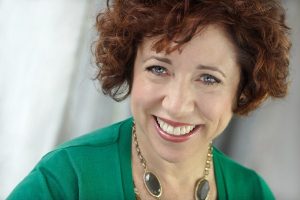In your career in radio or television, you’ve spent many years behind the mic or in front of the camera, and have probably accumulated a lot of experience reading commercials. Having this previous experience under your belt may make the transition to voice over seem like a natural one. But voicing and voice acting are entirely different ventures.
While there are some learned skills that are transferable from one career to the other, it’s not as easy as speaking into a mic and assuming you’ll get the job. Even the most seasoned radio or television professionals can benefit from a little extra training to help them make the leap into becoming a voice talent.
In this article
- Q: What are the typical characteristics of an announcer voice?
- Q: There’s a common misconception that just because you were in radio, you can jump right into voice acting. Why is that not the case?
- Q. What are some pitfalls that vocal performers can fall into, when they have a great voice but haven’t received training as a voice actor?
- Q: On the other hand, what transferable skills does radio give someone who is looking to become a voice actor?
- Q: How does someone re-train themselves (or what re-training do they need to receive) to lose an announcer style of delivery?
- Q: Can someone in radio make a successful transition to voice actor?
- Your Years Behind Your Mic Can Continue
- About Susan Berkley
Voice actor Susan Berkley made the transition years ago. Her challenge was actually losing the ‘radio voice’ and the delivery that comes with years over the broadcast airwaves. Below, she shares her journey into a lucrative voice over career.
Q: What are the typical characteristics of an announcer voice?
For men it can be big, booming, deep, and stentorian. For men and women, smooth, beautiful, well-modulated, controlled, almost perfect. Very stylized. The voices can have a lot of “air” in them which can be very attractive and pleasant to listen to. And because these voices tend to be stylized they can come across as beautiful, but rare and not natural…kind of like the vocal equivalent of a fashion model.
Q: There’s a common misconception that just because you were in radio, you can jump right into voice acting. Why is that not the case?
[In voice acting], advertisers are trying to give the impression that the listener is not being sold to or announced at; that the voice selling you the product is a regular person, just like the listener. In the best voice overs we don’t even notice the voice but visualize the product…the voice actor is a storyteller and is completely transparent. The voice disappears and the imagery takes over. When the voice actor is good we completely believe they are a real person and this takes training in acting techniques.
[In contrast], a “radio voice” calls attention to itself.
Voice actors are trained chameleons and can make themselves disappear so that the listener and the product become the star.
Q. What are some pitfalls that vocal performers can fall into, when they have a great voice but haven’t received training as a voice actor?
- Instead of being ‘in love’ with the product or the listener, they are in love with their voice [and the performance aspect].
- Their range may be limited (e.g. one note) and it can be hard to take direction.
- There can be a lack of connection to the audience.
Q: On the other hand, what transferable skills does radio give someone who is looking to become a voice actor?
Great question!
Radio people tend to have great timing and can do a great hard sell or retail spot. They have terrific stamina and consistency for long form narrations, e-learning, and great energy for TV promo work, political ads, and of course, radio liners. They tend to have excellent diction which is useful for many types of voice over such as voice prompts/IVR and medical narrations. They can do a great cold read, get the job done efficiently and out the door fast. They don’t break down a lot, are efficient when recording and can usually handle difficult pronunciations smoothly.
They also tend to have great home studio and editing skills, since learning audio production is part of most radio jobs. They really know how to work and use a microphone.
Q: How does someone re-train themselves (or what re-training do they need to receive) to lose an announcer style of delivery?
Take classes that focus on voice acting, such as my Perfect Performance technique and VO Accelerator Bootcamps ™ , and supplement them with acting and improv training. Study the great actors who do voice over. Work with a coach. They need an objective set of outside ears.
Radio people should also study the great ad professionals and copywriters so they really understand what it means to sell in print, since we are an extension of their work: John Caples, David Oglivy, Victor Schwab, Eugene Schwartz, and Claude Hopkins have all written excellent books, to name just a few.
Voice actors are in the advertising business and few people really understand that.
Q: Can someone in radio make a successful transition to voice actor?
Absolutely! Many of us have. It takes some hard work and determination, an open mind and a love of the customer.
Your Years Behind Your Mic Can Continue
If your years in radio are behind you and you’re looking to make the transition, it can be done.
Surround yourself with people that can help you become an actor, use the skills you do have, and learn all you can about voice acting.
It can be a fun, lucrative career. If you’re considering this transition, reach out to a coach and when you’re ready, sign up at Voices!
About Susan Berkley

Susan Berkley is a professional voice talent, author, teacher and founder and CEO of Greatvoice.com. As voice of AT&T and Citibank she is one of the most listened to voices in America. A former radio personality with 15 years experience, Susan successfully transitioned to a full time voice acting career.
Her voice has been featured on hundreds of broadcast and non-broadcast productions including promos for Lifetime, The Travel Channel and CNBC.
Susan has been featured in The New York Times and on CNBC and ABC News. She is the author of “Speak to Influence: How to Unlock The Hidden Power of Your Voice”.
Other voice talent call Susan Berkley “the most respected voice over teacher alive” and the list of talent who freely reference Susan and The Great Voice Company as their primary mentor for voice over training is just staggering. For a limited time, Susan is offering a FREE report:
Read more with “5 No-Fail Strategies for Turning Your Radio/TV Experience Into Voice Over Success”.

Leave a Reply